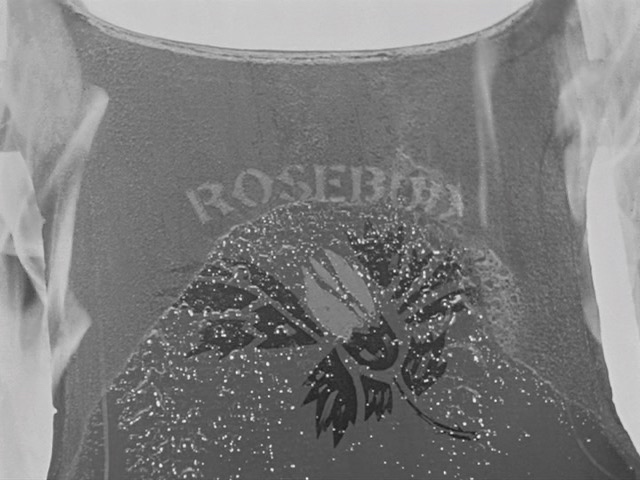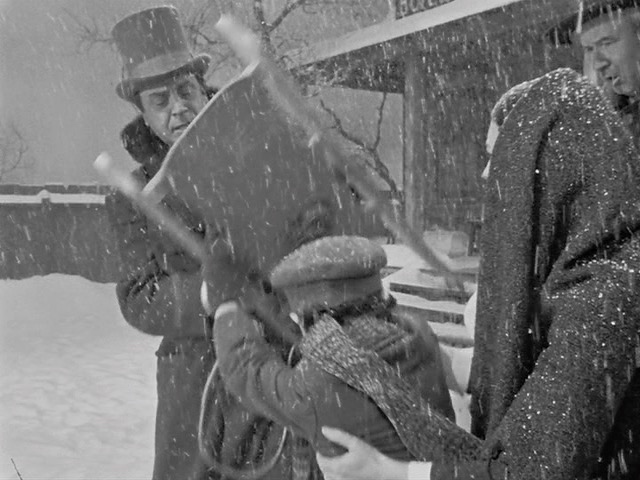« Buffalo Boys | Main | Forbidden Photos of a Lady above Suspicion »
January 15, 2019
Citizen Kane

Orson Welles - 1941
Warner Brothers Region 1 DVD
Is the cinema more important than life? - Francois Truffaut
Admittedly, I don't know the context of this quote. Would Truffaut have had an answer had he known that he would die at a relatively young age? Would he have traded making movies if it meant living longer? My own feelings about film, writing about those that have been sent to me to review or may have piqued my interest, even the act of watching another movie, have become more ambivalent since I was made aware of my own mortality.
I've have stomach trouble before, including a major operation back in 1975. But last May I was sick enough that it seemed that I had no choice but to check in at a nearby hospital. Had I not been hospitalized, I might have never known that there was a mass discovered in my left kidney. As it was, I had already by diagnosed with only partial function. A couple of doctors, independently of each other came to the same conclusion that I had cancer. My choice was to keep both kidneys and my partial kidney function, or remove the kidney, go on dialysis, and have even less kidney function, though theoretically extending my life. One of my doctors is blonde, attractive, and sometimes has a noticeable Oklahoma twang. She looks a bit like a backup dancer in a "Beach Party" movie from the mid-Sixties. Being told you have about two years to live doesn't sound so horrible when you get the news from a doctor who looks like she could have been a high school cheerleader.

So what does any of this have to do with Citizen Kane? It's the image of the sled that stuck in my mind. It's the idea that people have possessions that are meaningful to them, but without that same kind of importance to others. For the workmen in Xanadu, the sled was just junk to be disposed of, tossed into the fire. For Charles Kane, it's a reminder of the day his life changed when he was eight years old. For myself, it meant giving away some of my possessions, mostly books and movies, to friends who would appreciate them, rather than having them get tossed out of ignorance of any value, or put in an estate sale. If I remember correctly, Welles described the revealing of "Rosebud" as "dime store Freud". And it simultaneously does and does not answer questions. But having spent most of my life in Colorado, I did feel motivated to seen Citizen Kane, paying more attention to the scene of Charlie Kane's childhood.
First, there is no Little Salem, Colorado. Second, the mining towns are all along the Rocky Mountains, and there is no mining town that would have been three miles from the any part of the Colorado state line, as indicated in one brief shot. Nothing is stated regarding the kind of mineral or minerals were in the mine owned by Charlie Kane's mother, what was thought to have been a worthless deed left as boarding house payment, though it could have been most likely silver. Colorado was still not a state in 1871, and Denver was still considered a frontier town, so sending Charlie to Chicago for his education is not implausible. As for catching the train to go "back East", in reality it would be a treacherous trip by stagecoach in the snow to travel to Denver, which had only completed a rail connection to Kansas City the year before. What is undeniable is that Charlie Kane doesn't want to leave his parents, appearing to love both his strong-willed mother and powerless father equally. That Charlie's sled has great personal significance is shown when he gets a new sled from Mr. Thatcher on Christmas, and immediately tosses it aside.
The last time we see the parents, they are to receive $50,000.00 per year from Mr. Thatcher. Aside from a mention by Charles Kane that his mother had died, there is no indication of what they had done with their newly acquired money, or if there was any kind of family reunion. There is what might be regarded as an indirect closure as Buddy Swan, the child actor who portrayed Charlie Kane, died in Colorado Springs.
I am planning to make this the last full year I write about films. What this means is hopefully rambling about more films of personal interest, as well as being a bit more discriminating about the films I watch. I've seen eighty-eight of ninety Oscar Best Pictures. If a film is considered part of "the canon", I've probably seen it at least once. That includes every theatrical film directed officially and unofficially by Orson Welles. I just need to get around to watching that DVD of The Green Room, the only feature I haven't seen by Francois Truffaut.

Posted by Peter Nellhaus at January 15, 2019 09:40 AM
